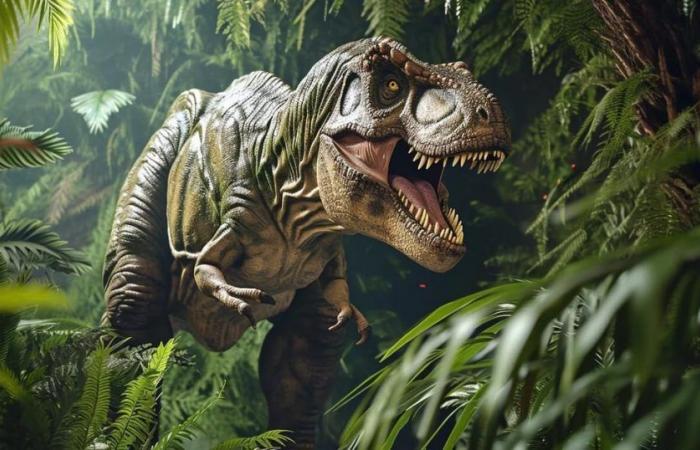The dinosaurs, in their prehistoric majesty, faced not only predators and prey, but also the fury of an ever-changing planet. Among the most challenging events they faced were the Volcanic eruptionscapable of transforming the Earth into a hell of fire and ash. Far from succumbing to the volcanic fury, the dinosaurs found a way to persist. Its ability to adaptation It allowed them not only to survive the immediate consequences of the eruptions, but also to take advantage of the changes they generated in the environment.
A recent study carried out by researchers from University College London and the University of Vigo in Spain has discovered that Dinosaurs acquired the ability to regulate their body temperature approximately 180 million years ago. This evolutionary change, known as endothermiaoccurred during Early Jurassic period as a result of intense Volcanic eruptions that altered the global climate.
The endothermiathe ability to generate heat internally, is a characteristic that is shared today by both mammals like birds. For years it was thought that dinosaurs were similar to modern reptiles in terms of their cold blood. However, this new study, published in the magazine Current Biologysuggests that Some dinosaur species may have been warm-blooded earlier than previously assumed.
The geological event that triggered these evolutionary changes is known as the Jenkyns Event, occurred approximately 183 million years ago. During this time, huge amounts of lava and volcanic gases erupted from the Earth’s surface, resulting in global warming that forced many species to adapt. This event caused the extinction of various groups of plants and has been identified as one of the key factors in the division of the main groups of dinosaursforcing them to develop differentiated climatic preferences.
He Dr. Alfio Alessandro Chiarenza, first author of the study, expressed surprise at the results, stating: “I was particularly surprised by the coincidence of most of the evolutionary changes with the Jenkyns Event.” This event has recently been recognized as a hyperthermia event in the geological recordand its influence on global ecosystems and the evolution of dinosaurs is a recent concept.
To reach these conclusions, the researchers analyzed 1,000 fossils distributed in different climates of the Mesozoic era (230-66 million years ago), using climate models, geography and evolutionary trees. Two of the three main groups of dinosaurstheropods (which include the Tyrannosaurus rex and Velociraptor) and the ornithischians (relatives of the Stegosaurus and Triceratops), migrated to colder climates and developed endothermia. The third group, the sauropods (which includes Brontosaurus and Diplodocus), remained in warmer areas and continued to be cold-blooded.
Chiarenza explains that “endothermic ability may have allowed theropods and ornithischians to grow faster, produce more offspring, and maintain physical activity for longer periods,” which helped them survive environmental degradation. Despite global warming, the polar regions remained dark for about four months a year, meaning these dinosaurs had to adapt to extreme conditions.
Howeversome sauropods thrived in arid environments, where their large cold blooded bodies They could store the necessary heat. “The larger your pot of water is, the slower it cools. “That’s what we think the sauropods were doing,” Chiarenza said.
Analysis of how climate changes affected the evolution of dinosaurs can provide valuable information about how today’s climate crisis is affecting today’s species. According to Chiarenza, “another reason to investigate and better understand global warming events in our geological past is to understand what effects they can have on biodiversity. A lesson from the deep past for our future.”






